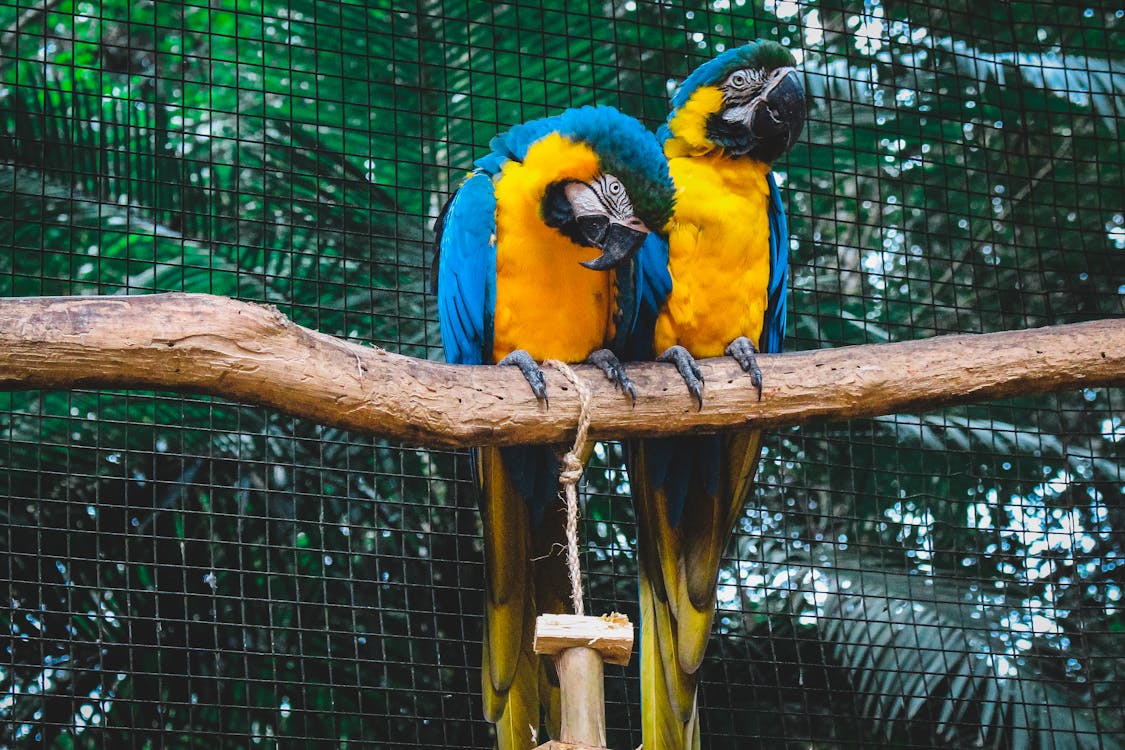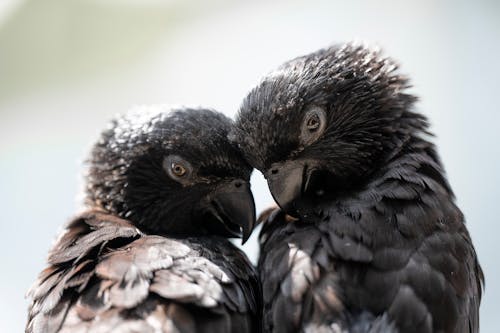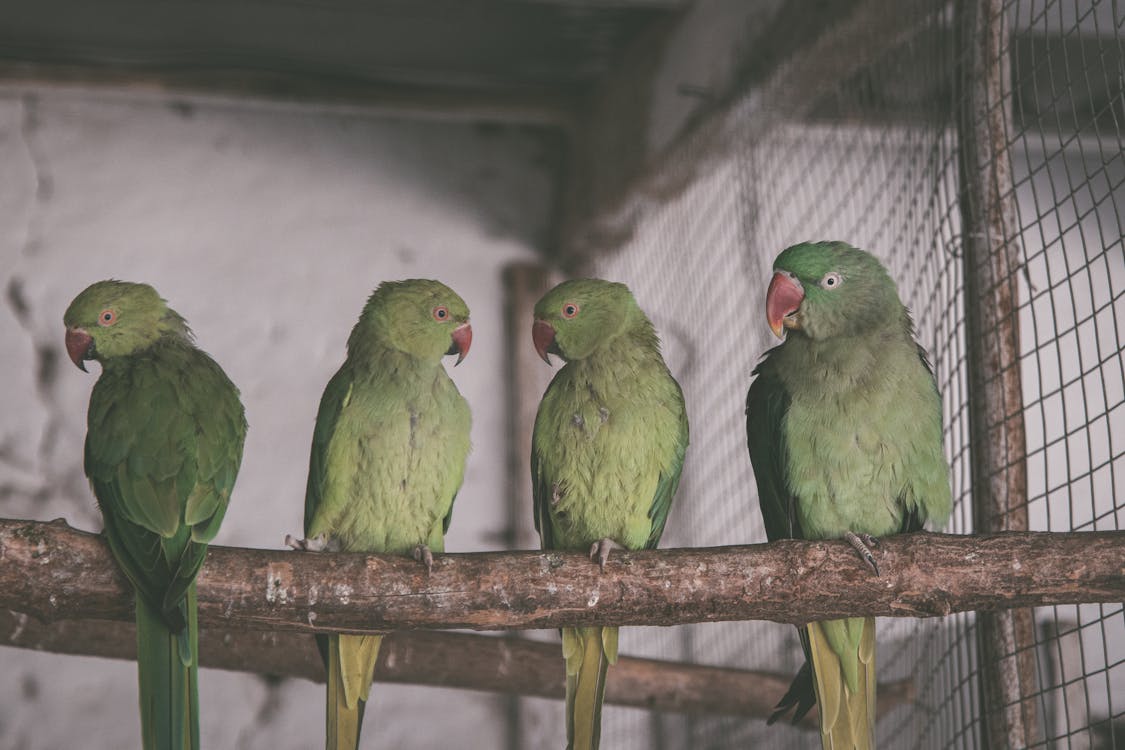Common Bird Diseases and Treatments A Guide for Owners
Taking care of birds is more than just feeding them food, providing water, and ensuring their safety.
Like all pets, birds can develop medical problems.
Many owners would like to know about common bird illnesses and how to treat them so they can remedy the situation before it becomes critical. This guide outlines some common bird diseases and how to handle them appropriately.
Psittacosis (Parrot Fever)
This is most common bird diseases and found in Parrot fever or psittacosis is a bacterial infection from Chlamydia psittaci. It is a disease that mainly affects parrots, but it can also be contracted by other birds.
Bird infected with psittacosis can show signs including lethargy, nasal discharge, watery droppings and difficulty breathing. This is a contagious disease that can also infect humans.
Veterinarians treat your pooch with antibiotics, typically doxycycline.
Hygiene-maintaining cleanliness in cages and isolating infected birds are crucial for controlling the spread of this disease. So, the Earlier You React, The Sooner You Recover.
Avian Influenza
Avian influenza is caused by different strains of the influenza virus. It spreads rapidly in birds, particularly in conditions where they are closely housed together. The most common symptoms include sneezing, nasal obstruction, a decrease in appetite and general weakness.
https://www.youtube.com/watch?v=NGo9JpoHUbs
While there is no direct cure, supportive treatment has helped birds recover. Avoiding exposure to infected birds, whether domestic or wild, is the best way to protect birds, said Dr. Andrew Bowman, an avian health expert and a veterinarian at Ohio State University. Prevention is taking regular precautions and keeping your living area clean.
Aspergillosis
Aspergillosis is a fungal infection associated with organisms of the Aspergillus species. Birds inhale fungal spores from dirty or damp places. Symptoms include difficulty in breathing, a running nose, and lethargy.
It is treated with antifungals such as itraconazole. Cleaning the bird’s home to eliminate damp bedding, mold and dust is fundamental. Having a space that is well-ventilated lowers the chances of a fungal infection.
Beak and Feather Disease
Circovirus, which causes beak and feather disease, primarily affects parrots. It is a debilitating disease that weakens the immune system. Birds affected lose many of their feathers and their beaks may suffer deformations.
Sadly, there is no treatment for this disease. Management involves supportive care, including proper nutrition and preventing secondary infections. Such affected birds should be separated to prevent exposure to others.
Candidiasis
Yeast infection is also called vaginal candidiasis, vaginal yeast infection, etc. which is caused by Candida albicans. It usually attacks the bird’s digestive tract and causes regurgitation, weight loss, and white lesions in the mouth.
Antifungal medications, nystatin or fluconazole, are the treatment. A clean and tidy environment and a well-balanced diet are the best prevention against candidiasis. Prevention with stress reduction and hygiene are important to keep as many birds as possible healthy.
Proventricular Dilatation Disease (PDD)
Avian bornavirus disease causing proventricular dilatation. That acts on a bird’s digestive and nervous systems. Birds with this disease often display symptoms of weight loss, undigested seeds in droppings, and behavior changes.
There is no cure for PDD, but symptoms can be managed. Anti-inflammatories and specialized diets can help improve the quality of life for a bird.
Parasitic Infections
Birds can also have internal and external parasites. Mites, lice and other itching, feather-plucking and restless external parasites. Intestinal parasites, including worms, may cause diarrhea, weight loss and lethargy.
Only a correctly chosen antiparasitic drug (ivermectin against external parasites fenbendazole against internal parasites) can help. Parasitic infections can be controlled by regular veterinary check-ups and a clean environment.
Respiratory Infections
Bacterial, viral and fungal germs can all lead to respiratory infections. Symptoms include cough, wheeze, nasal discharge and difficulty breathing. These infections are typically seen after exposure to cold drafts, indoor pollution or a degree of stress.
Veterinarians usually prescribe antibiotics or antifungal treatment, depending on the cause. Supportive care, whether it means keeping the bird warm and panic-free, speeds recovery.
Egg Binding
Egg binding is when a female bird is unable to pass an egg. This could be caused by poor nutrition, calcium deficiency or stress. A lack of bowel movements, sitting at the bottom of the cage and swelling in the abdomen should all ring alarm bells the latter three are general signs of straining to pass a stool.
Treatment for egg binding often includes warm baths, calcium supplements and gentle massage. In extreme cases, the veterinarian may have to help to remove the egg without risks.
Gout
Birds get gout through too much uric acid in the blood, usually related to kidney problems or diet. It leads to swollen, painful joints that make it difficult for the bird to move.
The most important components of treatment are dietary changes that limit protein intake and medications that control uric acid levels. Ensuring clean, fresh water and a proper diet can help to prevent the development of these deposits.
Keeping Birds Healthy
It is always better to prevent an illness than to treat it. Naturally, owners need to ensure that their feathered companions are in a clean and safe environment.
Providing a balanced diet, routine vet visits and observing for abnormal signs are all important steps in nurturing health. Prevent spreading infections via new birds: Quarantine new birds before adding them to your collection.
However, being aware of infection and the ways to treat them could help bird owners to help his/her pet to live with peace and safety. The key to addressing any health concern is ensuring early detection followed by prompt veterinary intervention.
always read about
Common Bird Diseases
